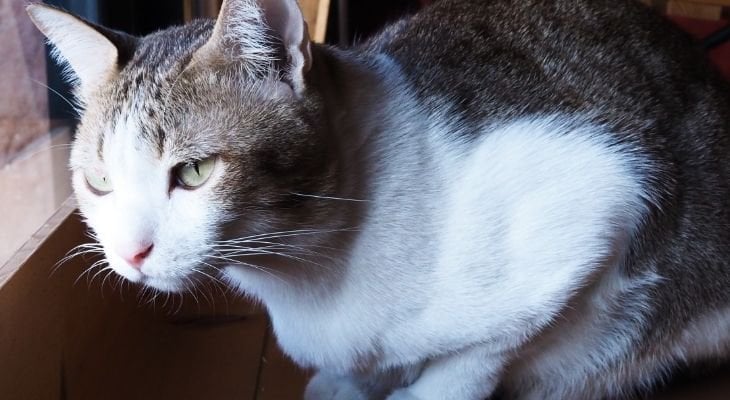
Feline leukemia (FeLV) is a virus that weakens your cat's immune system. Unfortunately, when the immune system does not function properly, your cat may be more likely to develop other diseases, such as cancer and blood disorders.
How Cats Contract Feline Leukemia
Cats get feline leukemia from other cats. The virus is spread in saliva, urine, feces, nasal secretions and milk from nursing mothers. When an infected cat bites or grooms another cat, that cat may develop the virus. If a pregnant cat has feline leukemia, the kittens might be born with the disease or may develop it after nursing. Because kittens have weaker immune systems than older cats, they are more likely to suffer from the virus. Cats can also spread the virus by sharing food dishes or litter boxes; although this does not happen very often.
Symptoms of Feline Leukemia
There may be no symptoms of the disease during the earlier stages. In the later stages, symptoms may be similar to those that are also typical of other types of viruses. Depending on the stage of the disease, a cat infected with feline leukemia may experience:
- Fever
- Diarrhea
- Gradual weight loss
- Loss of appetite
- Lethargy
- Eye disorders
- Pale gums or inflammation of the gums
- Poor coat
- Anemia
- Skin, bladder or upper respiratory tract infections
- Seizures
- Behavioral changes
- Swollen lymph nodes
Diagnosis and Treatment
Feline leukemia is diagnosed via a blood test that detects a protein found in the virus. Unfortunately, there is no cure for the disease. Many infected cats die within two to three years of being diagnosed. Although there is no treatment for feline leukemia, symptoms can be treated to keep your cat more comfortable. If weight loss is a problem, nutritional supplements will help your cat receive necessary nutrients. Your cat may get sick more often because of his weakened immune system, but these infections can often be treated with antibiotics.
Prevention
The FeLV vaccine will help prevent your cat from developing feline leukemia, but it does not offer an absolute guarantee that your cat will never get the virus. The best way to protect your furry friend is to keep him or her indoors. When cats roam, they are more likely to come in contact with infected cats that may transmit the virus through a bite.
Before you bring a new pet into your home, make sure that it has been tested for the feline leukemia virus. If one of your cats does develop the virus, separate it from your other cats to prevent the spread of the disease.
Has your cat had an examination and feline leukemia shot recently? If not, give us a call to schedule an appointment.
